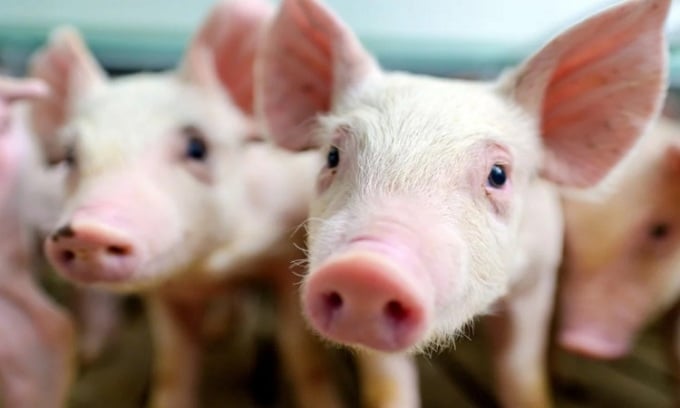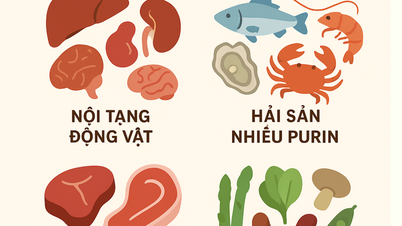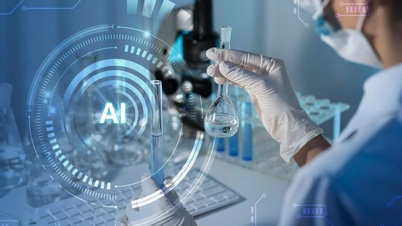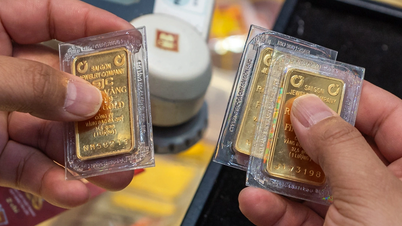For the first time, a team of scientists in China has grown kidneys containing human cells in pig embryos, promising an alternative to organ transplants.

Organs grown in pig embryos contain 50-60% human cells. Photo: SCMP
A research team at the Guangzhou Institute of Biomedicine and Health of the Chinese Academy of Sciences published a study in the journal Cell Stem Cell on September 7 that showed the potential for growing organs for transplantation and research in pigs. According to China Science Net, this is the first time human organs have grown inside the body of another species.
The kidney is one of the most commonly transplanted organs. However, a shortage of donor kidneys makes it difficult to provide healthy organs to recipients. Growing human organs in large mammalian embryos could be a breakthrough solution to this problem. Lai Liangxue, co-author of the study, said his team's method of introducing human stem cells into recipient tissue improves the nurturing of human stem cells inside embryos.
Of the more than 1,800 embryos used for the study, five developed successfully without degenerating. These embryos developed kidneys that contained 50 to 60 percent human cells. Because of ethical considerations and the risk of embryo degeneration, the pregnancy was stopped at 28 days. The team used the gene-editing tool CRISPR to target two kidney-development genes and limit the growth of pig cells. This created a gap in the pig embryos, allowing human cells to grow, said Dai Zhen, a member of the research team.
A major concern in creating chimeras (embryos containing cells from both humans and pigs) is the possibility of human cells entering the pig cell line. Human cells were found in the brain and spine of the embryos, but not around the genital ridge, suggesting that human cells were not mixed in with the pig's reproductive cells. Darius Widera, professor of stem cell biology at the University of Reading in the UK, said the research was a major milestone, but the discovery of human cells in the embryo's brain raised "important ethical questions".
This can be overcome by removing the gene responsible for the development of a particular cell line, but this also affects the kidneys, the study found. The paper also identified other challenges, such as the large number of degenerated embryos in the experiment, the possibility of organ rejection due to differences in cell types, and problems that could arise if the embryos persisted for longer.
Researchers are working to overcome the organ shortage problem. Genetic modification can block the expression of genes that cause rejection, according to NYU Langone Medical Center. Last year, doctors at NYU successfully transplanted pig kidneys with just one gene modification into a brain-dead patient. The organ continued to function 32 days after the procedure.
An Khang (According to South China Morning Post )
Source link


![[Photo] The 1st Congress of Phu Tho Provincial Party Committee, term 2025-2030](https://vphoto.vietnam.vn/thumb/1200x675/vietnam/resource/IMAGE/2025/9/30/1507da06216649bba8a1ce6251816820)
![[Photo] Panorama of the cable-stayed bridge, the final bottleneck of the Ben Luc-Long Thanh expressway](https://vphoto.vietnam.vn/thumb/1200x675/vietnam/resource/IMAGE/2025/9/30/391fdf21025541d6b2f092e49a17243f)


![[Photo] President Luong Cuong receives President of the Cuban National Assembly Esteban Lazo Hernandez](https://vphoto.vietnam.vn/thumb/1200x675/vietnam/resource/IMAGE/2025/9/30/4d38932911c24f6ea1936252bd5427fa)





























![[Photo] Solemn opening of the 12th Military Party Congress for the 2025-2030 term](https://vphoto.vietnam.vn/thumb/1200x675/vietnam/resource/IMAGE/2025/9/30/2cd383b3130d41a1a4b5ace0d5eb989d)

































































Comment (0)